- Product Info
- SUMIKAEXCEL PES
- Dimensional stability
Dimensional stability of SUMIKAEXCEL PES
Mold shrinkage
The molding shrinkage rate of SUMIKAEXCEL PES is small at 0.6% for unreinforced products and is not anisotropic. The glass fiber reinforced grade has anisotropy of 0.2% in the MD direction and 0.4% in the TD direction.
Figure 3-3-1 Comparison of molding shrinkage rates
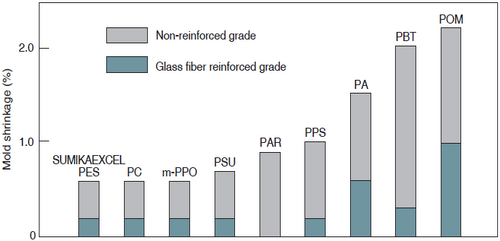
Linear expansion coefficient
SUMIKAEXCEL PES has a small linear expansion coefficient and its low temperature dependency. Figure 3-3-2 shows the temperature dependency of linear expansion coefficient. While the linear expansion coefficient of crystalline PPS-GF40% increases with increasing temperature, amorphous SUMIKAEXCEL PES shows a constant value up to 200°C, independent of temperature. Furthermore, glass fiber reinforced 4101GL30 has a low linear expansion coefficient of 2.0 x 10-5 (/°C), which is comparable to that of aluminum, making it a suitable material for precision molding.
Figure 3-3-2 Temperature dependence of linear expansion coefficient
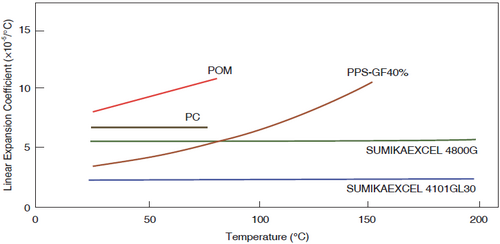
PVT characteristics
Thermoplastic resins, including SUMIKAEXCEL PES, change their specific volume depending on pressure, regardless of whether they are in a solid or molten state. The compressibility of this resin is expressed as the relationship between pressure, specific volume, and temperature (PVT characteristics). PPS is a crystalline resin, so the volumetric shrinkage associated with crystallization is large, but PES is an amorphous resin, so the volumetric shrinkage is small, and it has excellent dimensional accuracy and warpage.
Figure 3-3-3 PVT properties of PPS-GF30%
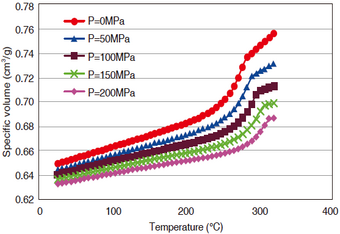
Figure 3-3-4 PVT characteristics of 4101GL30
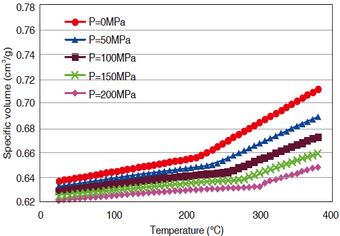
Dimensional change due to water absorption
SUMIKAEXCEL PES is water absorbent, but the dimensional change due to moisture absorption in parts immediately after molding is small, at 0.15% at saturation (1.1%).
Figure 3-3-5 Dependence of dimensional change on water absorption rate
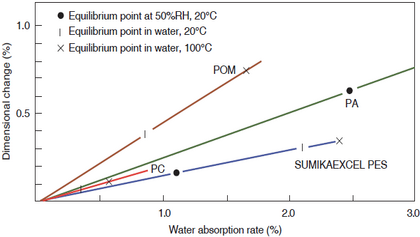
Figure 3-3-6 Water absorption curve of SUMIKAEXCEL PES

